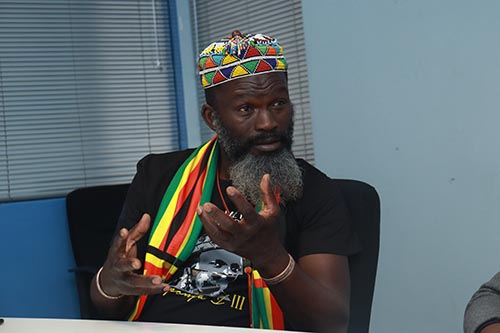If Bobi Wine becomes Uganda’s president, he will do what Museveni does or worse; says Zimbabwean philosopher Bishop Joshua Maponga. The renowned Zimbabwean philosopher, Bishop Joshua Marara Maponga III, has stirred up controversy with his recent statement regarding Robert Kyagulanyi, also known as Bobi Wine, potentially becoming Uganda’s president. During his visit to Uganda, the preacher nicknamed ‘the son of Africa’ expressed skepticism about any meaningful change occurring if Bobi Wine were to assume the role of the country’s leader. According to Bishop Maponga, Bobi Wine may end up following in the footsteps of current president Yoweri Museveni or even exacerbate the existing issues plaguing Uganda.
This bold proclamation has sparked a debate among Ugandans and supporters of Bobi Wine’s National Unity Platform. While some may dismiss Bishop Maponga’s words as mere speculation, others may see them as a cautionary reminder of the complexities involved in governing a nation. As a prominent figure in Zimbabwean intellectual circles, Bishop Maponga’s opinions carry weight and may influence how Bobi Wine’s political aspirations are perceived both locally and internationally.
Considering the current political climate in Uganda, with ongoing challenges related to corruption, human rights abuses, and a lack of transparency, the prospect of Bobi Wine assuming power has generated hope for many who seek change. However, Bishop Maponga’s remarks serve as a sobering reminder of the reality that transformative leadership is not guaranteed simply by a change in personnel at the top. The complexities of governance, rooted in systemic issues and entrenched power structures, may prove to be formidable obstacles for any leader, including Bobi Wine, to overcome.
Despite the skepticism voiced by Bishop Maponga, supporters of Bobi Wine continue to rally behind him, inspired by his message of unity, progress, and social justice. The upcoming presidential elections in Uganda will serve as a critical moment not only for the country but also for the broader African continent. The outcome of the election and the subsequent leadership of Uganda will have far-reaching implications for regional stability, democratic governance, and the future of African politics as a whole.
In conclusion, Bishop Joshua Maponga’s assertion that Bobi Wine may not bring about significant change if he becomes Uganda’s president highlights the nuanced nature of leadership and governance in the African context. While the hope for a brighter future under new leadership is palpable, the challenges and realities of political life cannot be ignored. As Uganda approaches a pivotal moment in its history, the words of Bishop Maponga serve as a reminder of the complexities and uncertainties inherent in the pursuit of lasting change. The impact of Bobi Wine’s potential presidency will extend beyond Uganda’s borders, shaping the narrative of African leadership and the trajectory of the continent’s political landscape. Only time will tell whether Bishop Maponga’s cautionary words ring true or if Bobi Wine’s leadership will indeed usher in a new era of progress and prosperity for Uganda and its people.





